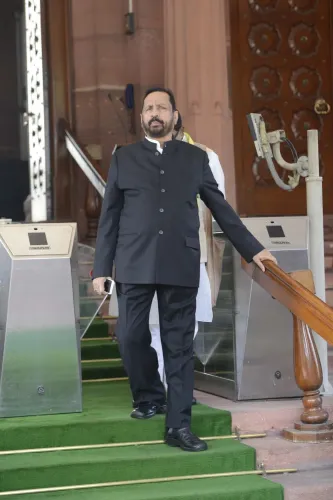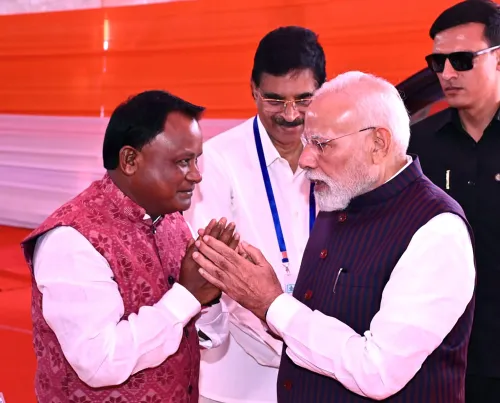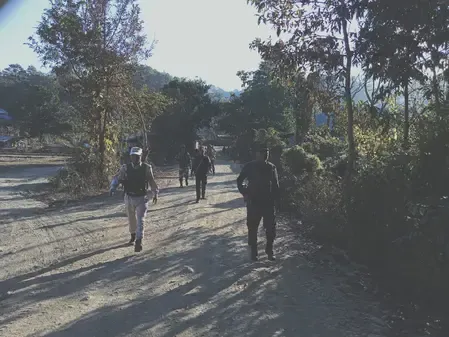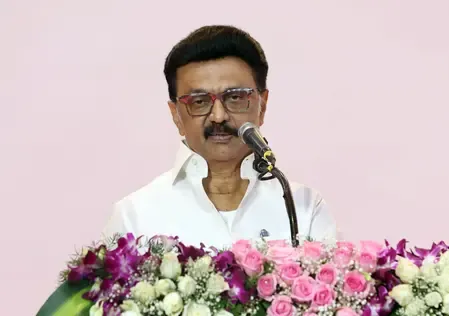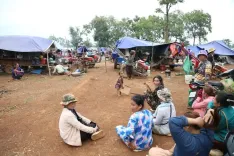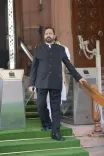Did K'taka govt mislead sugarcane farmers? Union Minister Joshi writes to CM
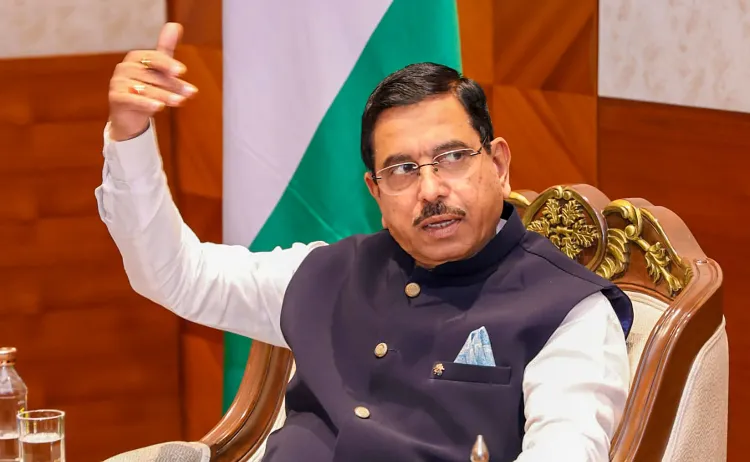
Synopsis
Key Takeaways
- Union Minister Joshi's letter challenges Karnataka's government.
- Protests by sugarcane farmers are escalating.
- Union government's initiatives aim to support farmers.
- FRP is critical for the income of sugarcane farmers.
- Negotiations and communication are essential moving forward.
Bengaluru, Nov 8 (NationPress) It is inappropriate for the Karnataka government to blame the Centre concerning the challenges faced by sugarcane farmers. Describing it as an “unjust act that misleads farmers,” Union Minister for Food, Public Distribution and Consumer Affairs Pralhad Joshi has addressed Chief Minister Siddaramaiah in a letter on Saturday to express his disapproval.
As protests by sugarcane farmers escalate across the state, Joshi stated that it is unacceptable for the Chief Minister to deflect responsibility towards the Centre regarding the protection of farmers’ interests.
He reiterated that the government led by Prime Minister Narendra Modi has consistently prioritized the welfare of farmers, enacting more robust measures than ever to protect the interests of both sugarcane producers and sugar mills.
Previously, farmers protested demanding the payment of cane arrears. The Union government under Prime Minister Modi acknowledged the farmers' distress and has resolved the issue — cane arrears are now at zero, he pointed out.
For the sugar seasons of 2022–23 and 2023–24, all outstanding dues have been settled by the Centre. For 2024–25, only approximately Rs 50 lakh remains due. “In light of these facts, blaming the Centre is unfair and misleading to farmers,” Joshi stated in his correspondence.
To guarantee timely compensation to sugarcane farmers, the Central government has provided support in various forms. Between 2014–15 and 2020–21, the Centre allocated about Rs 16,500 crore in financial assistance to sugar factories under multiple schemes, facilitating prompt payments to farmers.
Based on the recommendations from the Commission for Agricultural Costs and Prices (CACP), the Central government sets a Fair and Remunerative Price (FRP) for sugarcane each sugar season (October–September). This applies to all sugarcane-producing states. For the 2025–26 season, the FRP has been established at Rs 355 per quintal — inclusive of production costs — signifying a margin of 105.2 percent.
Over the past decade, the FRP has seen significant growth — rising from Rs 210 in 2013–14 to Rs 355 now, marking a notable increase this year. Additionally, farmers earn Rs 3.46 extra per quintal for every 0.1 percent rise in sugar recovery. In Karnataka, with an average recovery rate of 10.5 percent, the FRP is calculated at Rs 363 per quintal.
From 2013–14 to 2024–25, the overall value of sugarcane procurement has surged by 80 percent. Last year, this figure reached Rs 1,02,687 crore. According to the FRP established by the Centre, sugar factories are obligated to compensate farmers within 14 days of cane purchase. The enforcement of the provisions of the 1966 Sugarcane (Control) Order has been assigned to state governments, Joshi remarked.
Joshi urged the state government to declare a State Advisory Price (SAP) to benefit Karnataka’s sugarcane farmers — akin to what has been implemented in Uttar Pradesh, Uttarakhand, Punjab, and Haryana — rather than attributing blame to the Centre.
The Centre has been promoting sugar mills to channel excess sugarcane towards ethanol production. Until 2013, Oil Marketing Companies (OMCs) procured only 38 crore liters of ethanol, with a blending rate of just 1.53 percent. Currently, blending has escalated to 20 percent, with production soaring to approximately 1,001 crore litres, Joshi highlighted.
To facilitate ethanol distilleries in Karnataka, the Centre has allocated Rs 435.42 crore in financial assistance under the 'Ethanol Interest Subvention Scheme.' The ethanol allocation to Karnataka’s distilleries has expanded from 85 crore litres in ESY 2022–23 to 133 crore litres in ESY 2025–26. This initiative offers an alternative revenue stream for sugar mills, Joshi mentioned.
The Centre has also authorized increased sugar exports — raising the export limit from 10 lakh metric tonnes to 15 lakh metric tonnes, he added.
Moreover, the 50 percent export duty on molasses has been abolished. In this manner, the Union government is responding in a balanced way, supporting both farmers and the sugar sector, Minister Pralhad Joshi stated in his letter to the Chief Minister.
Earlier, following the backlash from sugarcane farmers, Chief Minister Siddaramaiah convened a continuous seven-hour meeting and announced a decision to set the sugarcane price at Rs 3,300 per quintal.
After the extensive meeting, the Chief Minister held a press conference to disclose the government's decision on Friday in Bengaluru.
A delegation will be sent to the Centre to address these concerns, with consensus from both farmers and factory owners, CM Siddaramaiah confirmed.
Sugarcane farmers and farmers’ associations in Belagavi and adjacent districts in northern Karnataka initiated a nine-day protest demanding a price of Rs 3,500 for one quintal of sugarcane. BJP expressed its support for the protest.
CM Siddaramaiah stated that sugarcane farmers in Belagavi have been protesting against the Central Government’s FRP (Fair and Remunerative Price), seeking a higher rate.


